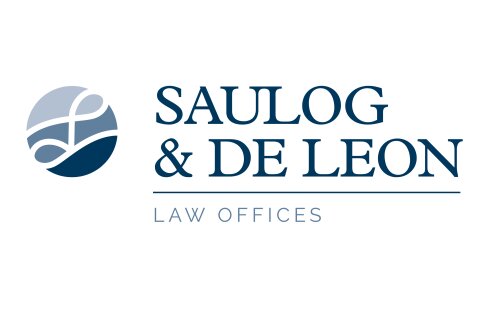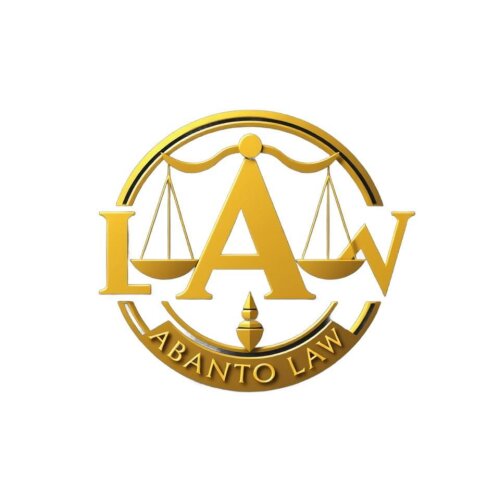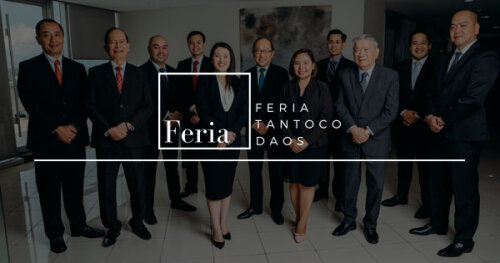Best Faith-Based Law Lawyers in Makati City
Share your needs with us, get contacted by law firms.
Free. Takes 2 min.
List of the best lawyers in Makati City, Philippines
About Faith-Based Law in Makati City, Philippines
Faith-Based Law in Makati City encompasses legal principles and statutes that are influenced by religious beliefs and the practices of various faith communities. Given that the Philippines is a predominantly Christian country with significant Muslim and other religious populations, Faith-Based Law often involves the intersection of civil law and religious doctrines. This field deals with issues such as marriage, divorce, religious discrimination, and the rights of religious organizations and their members.
Why You May Need a Lawyer
There are several situations where individuals or organizations in Makati City may need legal advice concerning Faith-Based Law:
- Settling disputes involving marriage or divorce where religious rites are significant.
- Handling cases of discrimination based on religious beliefs in employment or other public spheres.
- Ensuring compliance with local regulations for religious organizations, including charitable statuses.
- Navigating conflicts between civil obligations and religious freedoms.
- Advising on estate planning and end-of-life issues in accordance with religious beliefs.
Local Laws Overview
The laws relevant to Faith-Based Law in Makati City and the broader Philippines include:
- The Family Code of the Philippines - Governs marriage, legal separation, property relations, and other family relations, considering religious traditions.
- The Code of Muslim Personal Laws - Applies to the Muslim population, covering marriage, divorce, succession, and other personal matters according to Islamic jurisprudence.
- Religious Freedom Laws - Protect the right to practice religion freely, which may conflict with other civil obligations and require legal navigation.
- Government regulations for non-profit and religious organizations, including tax exemptions and charitable status.
Frequently Asked Questions
What is Faith-Based Law?
Faith-Based Law refers to the legal frameworks and regulations that are influenced or governed by religious doctrines and practices.
Do religious ceremonies have legal significance in the Philippines?
Yes, religious ceremonies like marriage often have legal significance, but they should comply with civil requirements to be legally recognized.
How does the Family Code interact with religious practices?
The Family Code provides the legal framework for marriage and family matters, often accommodating or respecting religious practices, but requires adherence to civil law for legal recognition.
What legal protections exist for religious organizations?
Religious organizations are protected by laws ensuring freedom of religion, and they may qualify for certain tax exemptions and statuses if they meet legal requirements.
How are divorce proceedings handled under Faith-Based Law?
Divorce proceedings can vary; for Muslims, the Shariah court handles these matters, while others may be referred to civil law courts, depending on religious affiliations and civil law.
Are religious beliefs considered in employment discrimination cases?
Yes, religious beliefs are protected under discrimination laws, and any unfair treatment based on religion can be contested legally.
Can a religious organization own property under Philippine law?
Yes, religious organizations can own property, provided that they are registered entities and comply with applicable regulations.
What role does Faith-Based Law play in wills and estate planning?
Faith-Based Law can guide the distribution of assets according to religious principles, but it must align with the national civil succession laws to be legally enforceable.
How do I register a religious organization in Makati City?
Registering a religious organization involves a series of legal steps, including documentation with the Securities and Exchange Commission and compliance with local ordinances.
Are there local bodies that handle Faith-Based Law disputes?
Yes, particularly for Muslims, there are Shariah courts that handle personal status cases and other religious matters, in addition to civil law courts.
Additional Resources
For individuals seeking more information or assistance with Faith-Based Law in Makati City, consider the following resources:
- The Philippine Commission on Women - Offers guidance on family laws.
- Muslim Affairs Coordinating Council of the Philippines - Provides support for issues under the Code of Muslim Personal Laws.
- Securities and Exchange Commission - For registering religious organizations.
- Local legal aid societies or the Integrated Bar of the Philippines for legal assistance and representation.
Next Steps
If you need legal assistance in Faith-Based Law, consider these steps:
- Identify your specific legal needs related to Faith-Based Law.
- Consult a lawyer specializing in Faith-Based Law or relevant religious legal matters.
- Gather all relevant documents and information pertaining to your case.
- Contact local legal aid organizations or professional legal associations for referrals.
- Prepare a list of questions or concerns to discuss during your consultation with a lawyer.
By taking these steps, you can ensure that you proceed with informed and effective legal action tailored to your faith-based legal needs in Makati City.
Lawzana helps you find the best lawyers and law firms in Makati City through a curated and pre-screened list of qualified legal professionals. Our platform offers rankings and detailed profiles of attorneys and law firms, allowing you to compare based on practice areas, including Faith-Based Law, experience, and client feedback.
Each profile includes a description of the firm's areas of practice, client reviews, team members and partners, year of establishment, spoken languages, office locations, contact information, social media presence, and any published articles or resources. Most firms on our platform speak English and are experienced in both local and international legal matters.
Get a quote from top-rated law firms in Makati City, Philippines — quickly, securely, and without unnecessary hassle.
Disclaimer:
The information provided on this page is for general informational purposes only and does not constitute legal advice. While we strive to ensure the accuracy and relevance of the content, legal information may change over time, and interpretations of the law can vary. You should always consult with a qualified legal professional for advice specific to your situation.
We disclaim all liability for actions taken or not taken based on the content of this page. If you believe any information is incorrect or outdated, please contact us, and we will review and update it where appropriate.













